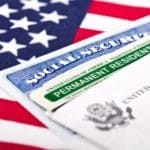As many as 12 million Americans didn’t get their stimulus payment. Usually it’s because their income was too low. Here’s what they can do: Apply through the government’s glitchy platform (if they even qualify), and do so before Nov. 21.
by Lydia DePillis, Propublica.org
It’s been 217 days since Congress instructed the IRS to send $1,200 stimulus checks to every citizen below a certain income threshold. And yet, it’s likely as many as 12 million people — including those who most need a financial boost — never got the cash.
The reasons include confusion about how the complex program works, IRS missteps, technical snafus and Treasury Department policy decisions that cut out large groups of people altogether. Those who fell through the cracks have until Nov. 21 to claim the money or risk losing out on any second round of stimulus payments, which Congress has been negotiating for months.
“Out of what should be an incredibly positive story, [the IRS] just kept getting black eye after black eye after black eye,” said Nina Olson, who served as the IRS’ taxpayer advocate until last year and is now director of the Center for Taxpayer Rights. “And that’s coming partly from the IRS just being overwhelmed, but also not doing the planning and strategic thinking that they really should have once it became clear that the pandemic wasn’t going to be a 60-day flu.”
In a response to detailed questions, the IRS said that it is “deeply committed to getting EIP payments to all who are eligible, including the difficult to reach community of individuals who are not required and do not file tax returns.”
“Factors involving time, staffing, IT resources and other components affected our decisions, but there is no question the IRS went to great lengths to deliver this program in record time to help more than 160 million households in need,” the agency said.
People who haven’t received payments fall into two basic groups: First, those who were entitled to the money but didn’t receive it automatically because their income was so low they didn’t file tax returns, and they either haven’t applied or tried to but failed. Second, those who were left out by intentional policy choices — namely, the spouses and children of undocumented immigrants and approximately 2 million inmates of prisons and jails.
Justifying its decisions to omit these groups, Treasury has said in legal filings that prisoners are not entitled to payments, and that certain categories of people may be excluded in order to meet Congress’ desire that money be dispensed as quickly as possible.
While the IRS expeditiously sent payments to more than 160 million households under extremely trying circumstances, taxpayer advocates contend that the agency lost enthusiasm for solving problems as the months dragged on, and that people who couldn’t figure out why they had not received payments received little help.
Now, groups representing low-income people, prisoners and immigrants are racing to get as many individuals hooked into the system as possible in advance of the deadline, which has already been moved back as obstacles arose. As recently as September, the IRS said that 9 million people, mostly those who earn too little to file tax returns, had not applied to receive the benefit, and the agency has not disclosed how many of those it has heard from since. At least an additional 3 million people have missed out because they were deliberately excluded.
The federal government also tried to give people money to help them meet basic needs and stimulate the economy during the 2008 recession. In that go-around, Congress instructed the IRS to do almost exactly the same thing — send checks to single people who made less than $75,000 the previous year or couples with income under $150,000, with the amounts tapering off above that.
In some ways, the current round is more generous: The $1,200 payments are twice the amount dispensed in 2008. Congress no longer required that stimulus checks go toward a recipient’s outstanding tax debt. Also, payments were sent directly to people who already received government benefits through Social Security and the Department of Veterans Affairs, even if they hadn’t filed tax returns.
Back in 2008, however, the IRS had more resources to draw upon. Its budget has shrunk 20% since 2010, limiting its ability to quickly fix problems. While the agency set up a portal for nonfilers in April — built by the tax software company Intuit — its glitches often discouraged users. Getting help requires spending hours on the phone waiting for an IRS agent with the power to correct any issues.
“The IRS simply does not have the resources necessary to make a manual case-by-case adjustment in potentially several million cases,” Erin Collins, the sitting national taxpayer advocate, said at a House Oversight hearing in early October.
That’s something that Penelope Protheroe, who runs the homelessness outreach nonprofit Angel Resource Connection, has struggled with for months. Her service area covers a four-county area that includes Seattle, and like many such groups around the country, she’s worked since the spring to get people signed up through the portal. Absent a large-scale federal public relations campaign, she had to spread the news through word of mouth that homeless people were eligible.
“The main problem is that they didn’t even know that they qualified, so why try?” Protheroe said. “They thought the stimulus check was connected with people who pay taxes.” (The IRS noted that it worked with thousands of organizations to spread awareness, but that it was limited in its efforts because it does “not have a marketing or advertising budget like some federal agencies.”)
Once people know they qualify, they face several obstacles: Many homeless people don’t have identification, like driver’s licenses, and the offices that issue such IDs have been closed. Homeless people tend not to have permanent addresses, and organizations that might have received checks for them were reluctant to do so because of liability issues. The portal for nonfilers doesn’t work on mobile phones, so homeless people must find desktop computers to sign up. In some cases, the places they would normally go to do so, like public libraries, have been closed.
That’s why Angel Resource Connection has set up outdoor laptops in four locations at least a dozen times to help homeless people through the process. Each case requires about 20 minutes of one-on-one attention, forcing people to wait in lines for hours until they can get to a volunteer. There are various ways the process can trip up applicants. Leaving a blank field instead of inserting a zero, for example, kicks a user out of the form without explanation.
Protheroe relayed her concerns to the IRS, which fixed many glitches and started sending out debit cards that can be used without a bank account. The money can be transformative, she said. Homeless recipients have used their stimulus checks to buy cars that provide shelter or equipment to start a small business. But as the deadline nears and days grow colder, it’s getting harder to find volunteers.
“Everybody thinks, ‘OK, we did it,’” Protheroe said. “You don’t have the people power to sign people up. So if you have a table, with just a couple volunteers now, you still have a tremendous line.”
Perhaps the most important improvement made by the IRS was automatically distributing money to people already receiving benefits through Social Security or the VA. But the rollout was rocky, and the IRS only fixed some problems after being sued.
After automatically sending payments to federal beneficiaries, the IRS realized that it hadn’t factored in dependent children, for whom beneficiaries are supposed to receive an additional $500. In April, the IRS issued a press release notifying Social Security recipients that they had all of two days to file to receive money for their dependents, which almost no one likely acted upon.
“It just seemed like they made the wrong decision there, and it really wasn’t feasible for people to comply,” said Christine Speidel, who runs a tax clinic at Villanova University that helps low-income taxpayers. In mid-August, after she partnered with Community Legal Services of Philadelphia to file a lawsuit charging that the IRS’ decision discriminated against the disabled, the IRS granted beneficiaries an additional 45 days to add their dependents.
Still, problems abound. The IRS has refused to make stimulus payments based on amended tax returns, which people can file to correct errors in their initial filings. It hasn’t taken into account 2019 tax returns filed after the original April 15 deadline — but before the new deadline of July 15 — that might have shown income low enough to qualify for a stimulus check, although taxpayers can claim a credit if they qualify while filing their 2020 taxes. And the agency is still trying to reissue checks to people whose payments were mistakenly redirected to pay child support owed by their spouses.
All of this, Speidel said, would be easier to navigate if the IRS offered better support for people having trouble. Instead, its phone lines have been overburdened and are generally unhelpful, since the stimulus payment task was contracted out to customer service agents who have no access to individual accounts. Also, even after the IRS started re-opening its physical taxpayer assistance centers in June, it still isn’t accepting paper returns there, cutting off another support avenue for people who have trouble navigating computers.
“The IRS has got to put resources back into the local offices if this is going to be equitable,” Speidel said.
ProPublica has received messages from hundreds of people who haven’t been able to navigate the portal and were given no explanation for why their attempt did not work.
Take Josee Davis, a 23-year-old house cleaner who rents a trailer with her fiance in Heidelberg, Mississippi. She lost work during the pandemic, since most of her clients are elderly and do not want to risk infection. She was never able to receive unemployment benefits, despite the fact that independent contractors were supposed to have been included in the extra assistance provided by the CARES Act. She didn’t make enough money in 2019 to file taxes, but when she tried to apply for a stimulus payment, it did not go through.
After hours on the phone trying to reach the IRS, an agent told that her application showed that she had checked the wrong box — saying she could be claimed as a dependent, which would disqualify her. She doesn’t remember checking the box.
“They had no way to fix it, is what they told me,” Davis said. Now she’s filling out job applications because her fiance’s income as a truck mechanic barely covers the bills. “I feel as though every day is a breaking point, but you keep on going,” she said.
One step that might have helped the IRS find more eligible people like Davis would have been to also automatically distribute payments to those who receive benefits through state-administered programs, like food stamps and Medicaid. But so far the agency has not done so.
Millions of Americans Might Not Get Stimulus Checks. Some Might Be Tricked Into Paying TurboTax to Get Theirs.
Congress gave the IRS the job of sending out coronavirus rescue checks. But the underfunded agency is struggling, while for-profit companies like Intuit have started circling, hoping to convert Americans in need into paying customers.
All of those complications just arose in the course of reaching people whom the IRS wants to reach. The agency thinks that millions more aren’t entitled to its help.
One group entirely excluded from the stimulus program was the approximately 2 million inmates of prisons and jails. Incarcerated people were included in the 2008 stimulus payments, and the CARES Act didn’t carve them out, so initially the IRS issued their checks. But in early May, the Treasury Department reversed the decision and said prisoners shouldn’t get payments after all. The IRS then moved to pull back the 85,000 payments that had already gone out.
It took until August for prisoners and their families to link up with lawyers from the San Francisco-based firm Lieff Cabraser Heimann & Bernstein, and put together a class-action lawsuit. Treasury’s lawyers argued in a filing that the CARES Act doesn’t entitle any particular individual to a stimulus payment, and prisoners are “more insulated from the economic effects of the pandemic than many others because their basic needs such as food, shelter, and health care are already being provided for by the state and paid for by taxpayers.”
But the coalition of groups involved in the lawsuit argued that isn’t the case: Prisoners must pay for a wide range of daily needs, from hygienic items to education, entertainment, internet usage and phone calls. Generally they’re supported by their families, who are disproportionately low-income people of color — a demographic that has been hit hard by the pandemic’s economic fallout.
At the end of September, a circuit court judge in the Northern District of California ruled in favor of inmates and later ordered the IRS to move back its deadline for filing paper returns to Nov. 4. The agency must also send paper forms out to every state and federal prisoner in the country and post notices in prisons about the payments.
Julie Anderson is the outreach director at Restore Justice, an Illinois nonprofit that works with the families of prisoners. She runs a support group for mothers of inmates, and her son, Eric, is serving a 30-year sentence for a double homicide he was involved in at age 15. He told her about the mood in the prison when the news circulated that they would be getting $1,200 stimulus payments — more money than many had seen in years. After months of lockdowns and no outside visits to control the coronavirus, it was a breath of relief.
“They still have families, so the stimulus check might mean that they’re able to send the money so their kids could get Christmas gifts,” Anderson said. Those who are getting out soon could use the money to get back on their feet, perhaps reducing the likelihood that they’ll reoffend and end up back in jail. “I’m overwhelmed just thinking about the difference it’s going to make in people’s lives.”
But the IRS is appealing, and the agency’s guidance about what is required has changed several times. Currently, it’s unclear how widespread awareness is among prisoners that they’re supposed to get stimulus payments.
On Oct. 8, Robert Hastings, an inmate at Fort Dix federal correctional institution in New Jersey, asked a judge to extend the deadline because so few prisoners knew they needed to file. He said he only found out about the order through a family member, and that at first his unit supervisor refused to give him the forms. Some inmates can’t read or write, and they would need help to complete them.
“We have to depend on prison staff to provide us with our legal help,” Hastings wrote in neat handwriting. “If they do not help us there is nothing we can do except what I am doing now.”

Alan Mills, the director of the Uptown People’s Law Center in Chicago, facilitated the distribution of tax forms to state prisons in Illinois. When his organization picked them up, thousands were missing. He thinks that might be partly because prisoners don’t have their Social Security numbers handy, and would have to ask corrections officers for help in locating them.
Texas Department of Criminal Justice spokesman Jeremy Desel said that prison staff is distributing forms to inmates who request them. But he said that the handful of checks received so far are being held pending further IRS guidance. Helping approximately 121,000 prisoners across 101 compounds get their payments is also not something the agency wants to spend much time on.
“In the midst of a global pandemic,” Desel said, “ultimately this is not the highest priority of this agency.”
With prisons focused on following the IRS’ directions, the logistical task of helping millions of prisoners sign up for stimulus payments has fallen largely to prison outreach groups, which are unevenly distributed throughout the country. Institutions near urban areas — like San Quentin in San Francisco — have more outside programming.
“My guess is that they’re acting faster not because of the IRS, but because there are vigilant volunteers that care about Individuals inside those institutions,” said Sonja Tonneson-Casalegno, deputy director of programs at Root and Rebound, a California nonprofit that works with the families of incarcerated people and runs a legal hotline for inmates. “In other prisons, people are still like, ‘nobody knows about this, can you tell us about this.’”
As awareness has spread, the court has been flooded with letters from prisoners asking for assistance. On Thursday, in response to reports that some prisons had been hesitant to distribute the forms, Judge Phyllis Hamilton ordered that the IRS send prisons another notice directing them to do so.
The second major group to be excluded from the stimulus program are U.S. citizens married to undocumented immigrants, at least 1.2 million people.
The CARES Act forbids payments to people filing with Individual Taxpayer Identification Numbers, used by people without Social Security numbers to pay taxes. As a consequence, it also excludes spouses who have filed jointly with such people — which is considered an important factor in evaluating eligibility for green cards and eventual naturalization, putting these couples in a Catch-22.
That was the confusing situation facing Round Rock, Texas resident Ron Hash, whose Peruvian wife, Julissa, earned money doing household work and babysitting. In 2018, they filed using his Social Security number and her ITIN. She obtained her permanent residency in 2019 and the couple filed jointly using her new Social Security number, but they never received their stimulus payment, which they otherwise would have gotten automatically. Since Julissa lost most of her income during the pandemic, getting by on Hash’s salary as an IT director has meant cutting down on discretionary spending for their family of four.
“No vacations, no date nights,” Hash said. “Compared to a number of people we’re better off, because I was able to keep my job, but we’ve had to tighten our belts.”
This was also the case in the 2008 round of payments. But the sharpness of this recession — and its disproportionate impact on the Latinx community, which includes the majority of couples with mixed immigration status — sparked a class-action lawsuit alleging that excluding citizens from the stimulus program on the basis of their marriages is unconstitutional.
There are currently at least five cases making their way through various courts around the country. In the furthest along, in the Central District of California, a judge sided with the government. The plaintiffs have appealed and anticipate taking the matter to the Supreme Court.
The last group excluded by the IRS — people who died before the stimulus payment reached them — may not seem sympathetic. But they were included in the 2008 stimulus if they had filed taxes the previous year, and the IRS decided to err on the side of sympathy for surviving spouses.
“We know that surviving spouses have a really hard time,” said Olson, the former National Taxpayer Advocate. “And you have the income cutoff anyway, so it’s not like it’s rich dead people. It’s people who are struggling.”
This time, according to a June Government Accountability Office report, IRS started out doing the same thing. But after reporters and members of Congress questioned why payments were going to decedents, the Treasury Department decided that they were illegitimate and posted on its frequently asked questions page that people who received checks that were for deceased relatives should return them.
To Gabriel Zucker, a public interest technology fellow at the New America Foundation who has studied the rollout of the stimulus payments, getting money to people who need it during an emergency depends on commitment and the resources necessary to fix problems as they inevitably arise.
“After that first round, I started to get the sense that they felt they had done a lot, which they had, and then wanted to move on with their lives,” Zucker said. “That meant that if they did something that accidentally screwed something else up, there wasn’t a ton of willingness to correct for it.”
Longer term, however, Zucker thinks that improving stimulus programs may require bringing more people into the tax system — whether or not they owe taxes. The earned income tax credit program, a subsidy for people who don’t make enough to pay income taxes, could be expanded to make it worth it for more people to file a return. That would allow the IRS to connect with more Americans automatically, rather than having to hunt them down whenever Congress decides to get cash in peoples’ hands quickly.
Ultimately, it’s a change in the IRS’ mission toward redistribution, not just raising revenue. To facilitate easier transfers of cash, others have proposedconnecting more people to the financial system through using post offices as public banks, skipping the IRS entirely.
“The IRS doesn’t see its job as giving money to people,” Zucker said. “It sees it as taking money from people.”
Justin Elliott, Beena Raghavendran, Sally Beauvais contributed reporting.






























































